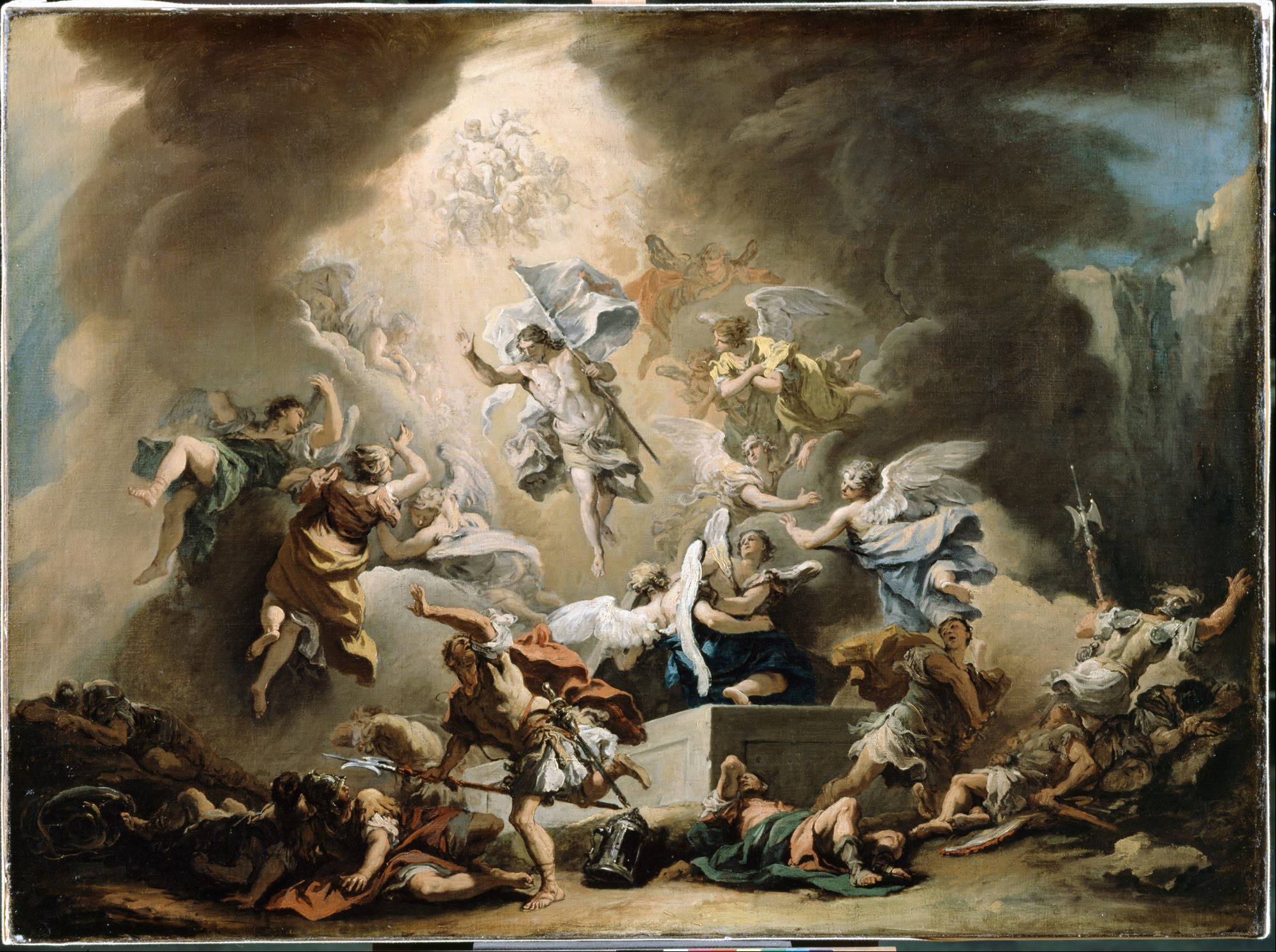
In the early church, when believers met one another in the holy season of Easter, they would not just say “Hello.” Instead, they would greet one another with a hearty and enthusiastic Christe anesti–“Christ is risen!”–to which the only possible response is Allthos anesti–“He is risen indeed!” On this boisterous, rollicking, joy-filled day, it is surely appropriate to do a bit of shouting!
![]()
In celebration of this holiest of holy days, St. John of Damascus wrote the glorious hymn below. Have a joyous Easter, sisters and brothers and friends: Christe anesti!
Come, you faithful, raise the strain
of triumphant gladness!
God has brought forth Israel
into joy from sadness,
loosed from Pharaoh’s bitter yoke
Jacob’s sons and daughters;
led them with unmoistened foot
through the Red Sea waters.
’Tis the spring of souls today:
Christ has burst his prison,
and from three days’ sleep in death
as a sun has risen.
All the winter of our sins,
long and dark, is flying
from the Light to whom we give
laud and praise undying.

Neither could the gates of death,
nor the tomb’s dark portal,
nor the watchers, nor the seal,
hold you as a mortal:
but today, among your own,
you appear, bestowing
your deep peace, which ever more
passes human knowing.
Alleluia! Now we cry
to our Lord immortal,
who, triumphant, burst the bars
of the tomb’s dark portal;
Alleluia! With the Son,
God the Father praising;
Alleluia! Yet again
to the Spirit raising.
AFTERWORD:
The above translation of John of Damascus’ sixth century hymn is by John Mason Neale: likely better known for his Christmas carol, “Good King Wenceslas”! I have usually sung this to St. Kevin, a tune by Arthur Sullivan.
Christ is risen! He is risen indeed! Hallelujah!
